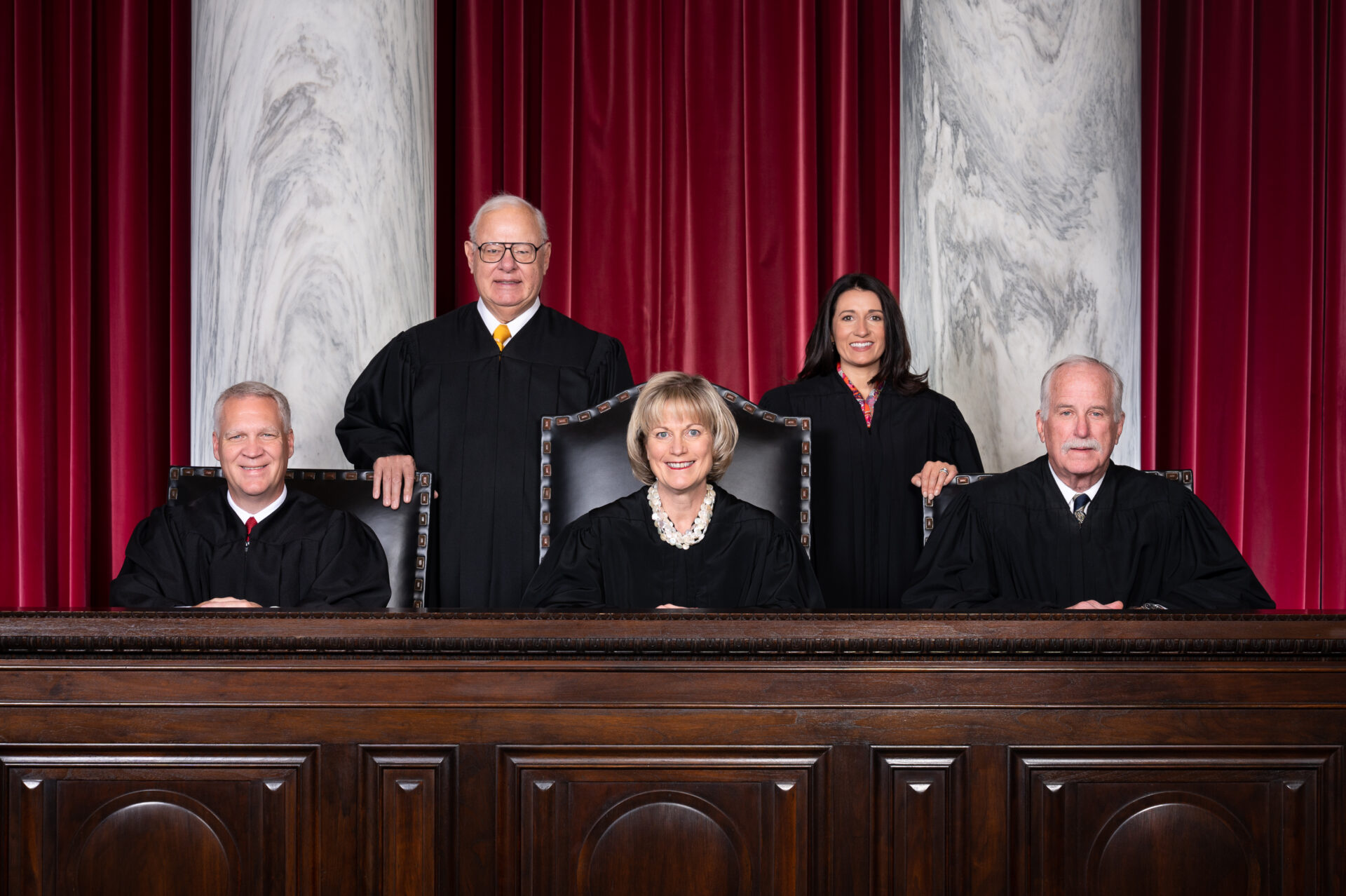Story updated on June 1, 2023 at 2:58 p.m.
West Virginia Supreme Court of Appeals Justice John Hutchison announced Thursday that he will not be running for re-election at the end of his term in 2024.
He noted in his letter to Chief Justice Beth Walker that he was making the announcement now so anyone who is interested in running for his seat on the high court will be able to plan accordingly.
“It’s a huge election year. You have to organize and be able to raise money, and that atmosphere is critical,” Hutchison said. “You’ve got to get out there, meet the public. Get your message out, let people know you’re running. It’s only fair that knowing that I’m not going to do it. Obviously, I am aware of the Court’s desire to undertake a strategic planning process and you need to know who will be on the Court in the long-term,”
He said, “absent some unforeseen catastrophe” that he will complete his term on Dec. 31, 2024.
Hutchison was appointed to the Supreme Court in December 2018 by Gov. Jim Justice and elected on June 9, 2020, to a term ending Dec. 31, 2024.
Hutchison filled the seat of convicted former Justice Allen Loughry. Loughry resigned from the court about a month after a federal jury convicted him on 11 charges. He was suspended from his seat earlier that year over allegations that he repeatedly lied and used his public office for personal gain.
“When I came to the Court in January 2019 the judicial system was starting to come out of a very dark place,” Hutchison noted. “What’s brought it into the light is is the infusion of new blood, new ideas with that a recognition that the Court needed to change its direction and become more transparent. Let people know what we’re doing will not be secretive as it was in the past, be willing to communicate with each other.”
He previously was appointed to the bench in the Tenth Judicial Circuit (Raleigh County) by then-Gov. Gaston Caperton in 1995 and was elected to that seat in 1996 and re-elected in 2000, 2008 and 2016.
As a circuit judge, Hutchison was a member of the Supreme Court’s Mass Litigation Panel and was a judicial representative on the Commission to Study Residential Placement of Children. He was appointed several times to sit on the Supreme Court when a Justice had been recused.
He also served as treasurer, secretary, vice president, and president of the West Virginia Judicial Association and was chairman and vice-chairman of the association’s legislative and pensions committees. He was certified as a mediator by the National Judicial College in 2017.
He was born and raised in Beckley, West Virginia. He earned a bachelor’s degree in history and political science from Davis and Elkins College in 1972, and a law degree from West Virginia University College of Law in 1980.
Hutchison said he looks forward to spending quality time with his wife Viki and his family.
“Especially my wife,” he said. “This year we will have been married 48 years, and she has been behind me the entire time. I never will be able to repay her for what she has done for me.”
Hutchison said he hopes to continue to serve the court as a senior status judge or as a mediator.
“We need senior status judges,” Hutchison said. “We have to have judges available that can step into the breach whenever there’s nobody else that can handle a case, or there may be an illness or something and somebody can go in for a short period of time and cover a docket or whatever. And I absolutely want to make myself available for that.”
